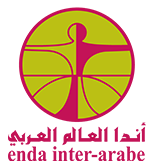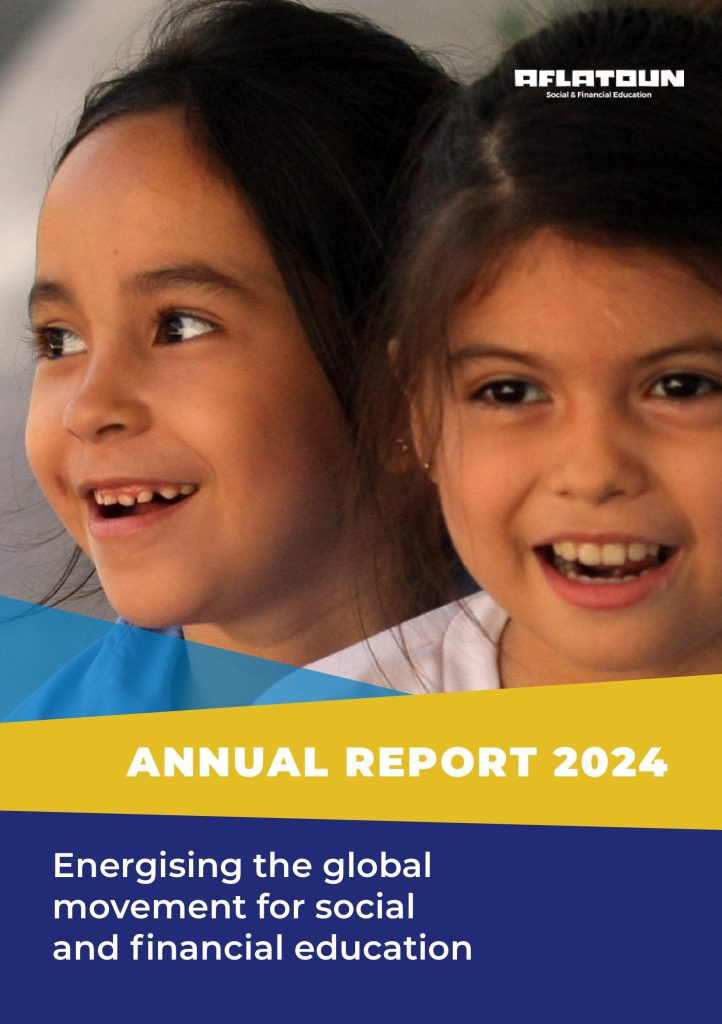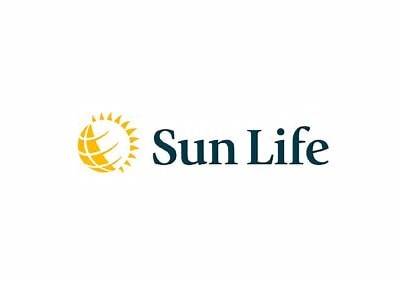National Integration of Social and Financial Education in Tunisia
The process of implementation
Enda Inter-Arabe is a Tunisian organisation that offers targeted and personalised training for young people to guide them in all stages of development, which has been operating in the country for over 30 years.
Its partnership with Aflatoun International began in 2018. Together, they conducted two advocacy workshops with District Inspectors of Education from Tunisia’s Ministry of Education. The purpose of these workshops was to introduce Aflatoun’s Social and Financial Education programme, gather feedback for contextualisation, and ensure the commitment of the pedagogical chain. The plan was for the inspectors to later lead the teacher training phase. The workshops were held separately for elementary and middle/secondary school inspectors, to have deeper insights according to age groups and learning methods. Aflatoun presented its work, curricula, integration approaches, and success stories, followed by a detailed discussion to plan the next steps.
Subsequently, in 2019, Enda Inter-Arabe signed a three-year agreement with the Tunisian Ministry of Education to integrate financial and social education into the primary education system.
Since then, the programme has expanded both in scope and quality, thanks to the strong collaboration between the Enda Inter-Arabe team, its financial partner Enda Tamweel, and Aflatoun International. Continuous knowledge exchange, experience sharing, and training have been key to supporting the program’s implementation in Tunisia.
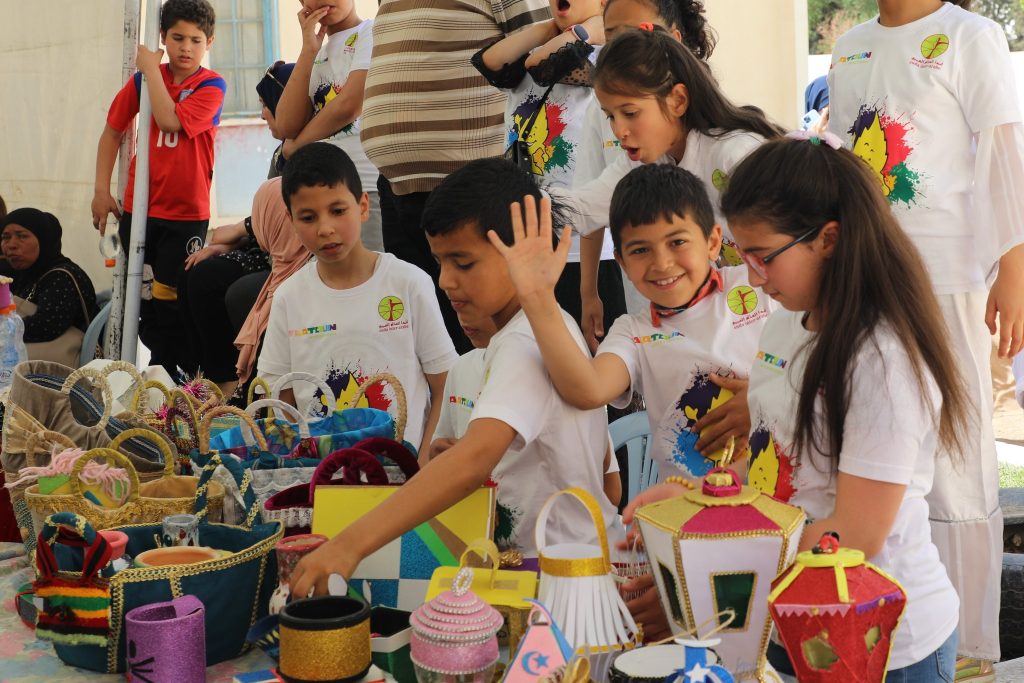
The pilot phase
The initial phase focused on implementing the Aflatoun programme and establishing Aflatoun Clubs in schools. The development of these clubs was carried out gradually, with systematic monitoring and evaluations conducted by the Enda Inter-Arabe team. They utilized M&E tools and held seminars with various stakeholders, including students, teachers, facilitators, pedagogical supervisors, and administrators involved in the programme. The programme’s well-documented impact at all levels prompted the Ministry of Education and the General Administration of Primary Education to approve a pilot phase, integrating social and financial education into selected primary school subjects.
The pilot phase was mainly divided in 2 stages:
After securing initial approval to launch the pilot phase in 13 primary schools, Enda’s team in charge of the Aflatoun programme, supported by a group of educational experts, developed a reference document outlining the methodology for integrating social and financial education into various subjects within the national curriculum.
A workshop was held to develop guidelines for the networks and stakeholders involved in integrating social and financial education, focusing on identifying the academic subjects and lessons to be adopted. The facilitators’ guide was created in consultation with the Ministry of Education’s subject supervisors, facilitators, and teachers who led Aflatoun’s clubs. The pilot phase, targeting third-grade students in selected schools, began late in the third semester of the 2022-2023 school year but was highly successful. Teachers and academic supervisors provided positive feedback, particularly in Mathematics, noting increased student participation and endorsing the integration of social and financial education. Despite the pilot’s limited scope (13 primary schools), its success prompted the General Directorate of Primary Education to expand and disseminate the program to all 26 regional Directorates of Education in Tunisia for the 2023/2024 academic year.
Where are we now?
Between 2019 and 2023, the collaboration between Aflatoun, Enda Inter-Arabe, and the General Administration of Primary Education of the Ministry of Education in Tunisia, has achieved:
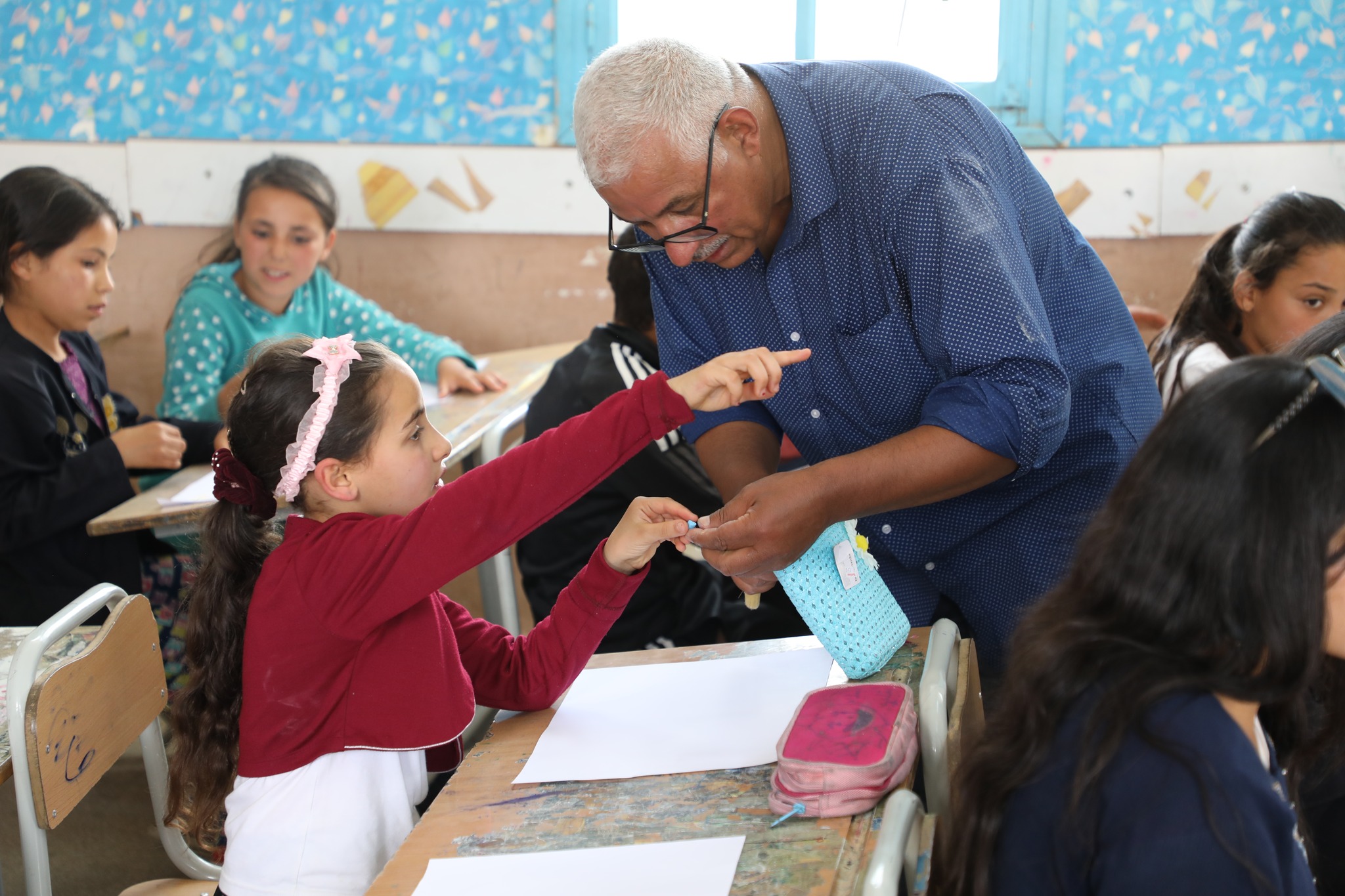
The programme team, along with a group of teachers, is now working to expand the pilot phase, initially implemented for third-grade students, to include first- and second-grade students.
In collaboration with the General Directorate of Primary Education, it has been agreed to select 50 primary schools across various regional education delegations for this expansion. This phase has began in February 2024 and is ongoing.
In partnership with:
